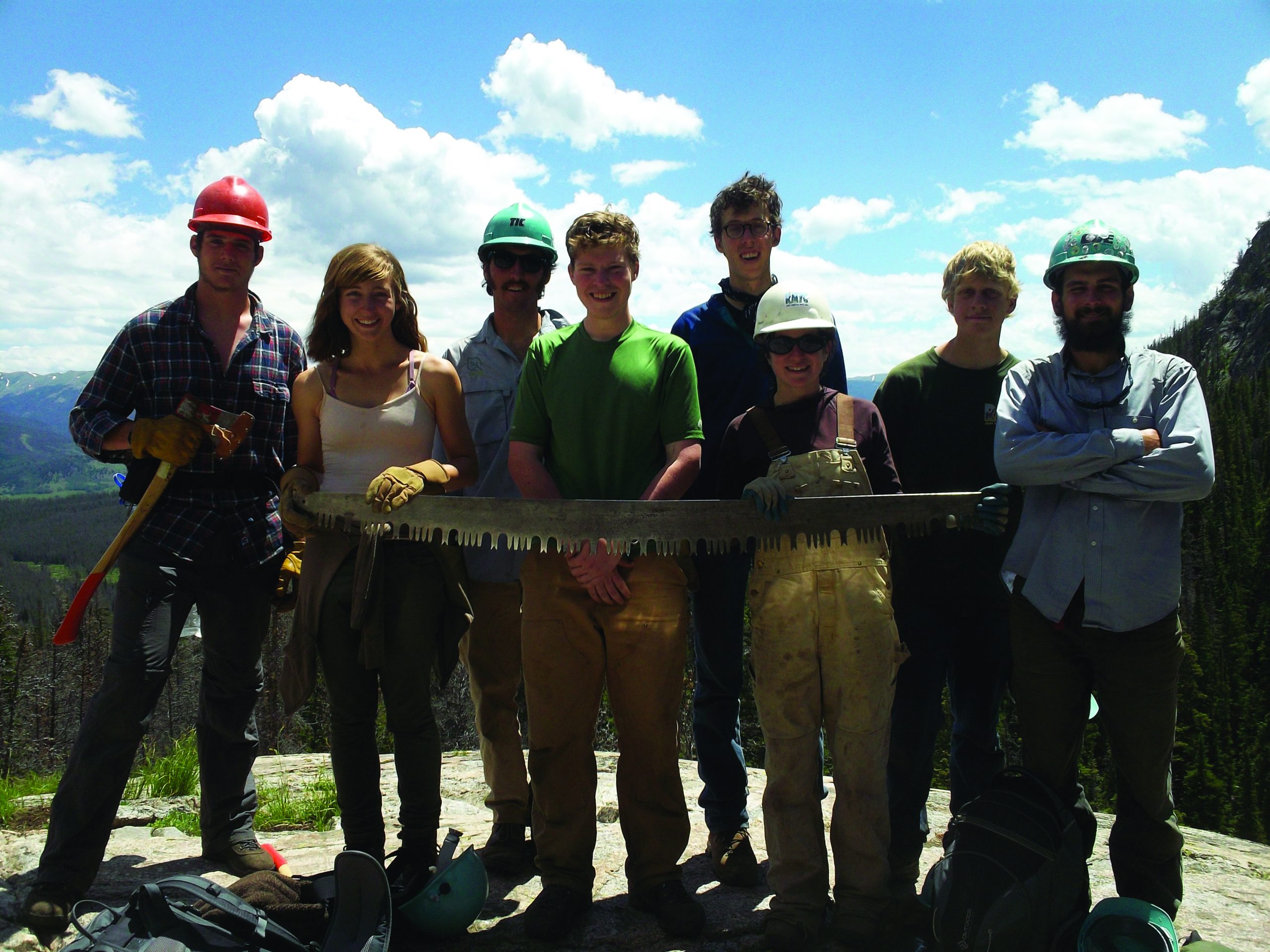I’m sitting in my apartment room looking out my window, observing the fierceness of the winter storm whipping about outside. Above my window is a string of prayer flags I made with my coworkers this past summer while working on a trail crew for Rocky Mountain Youth Corp, which I keep to remind me of that significant experience.
Eight others and I, including two leaders, spent the summer living in tents and moving from job site to job site in our 15-passenger van with a trailer, traveling around Colorado and sometimes even into Wyoming.Our personal belongings during the summer were liberatingly limited to: work clothes, rain gear, long underwear, tent, sleeping bag, sleeping pad, headlamp, water bottle, boots, work gloves, a small backpack, a large backpack, three pairs of wool socks, camp clothes, a few pairs of underwear, a toothbrush, toothpaste, a coffee mug and sunglasses. We had coolers for food and a propane camp stove with an aluminum folding table and tarp for our kitchen. We had everything we needed.
I was introduced to a new way of life that was focused on the environment and people who embraced the great and wild outdoors. In Wyoming we stayed at a ranger outpost near Pinedale for two weeks while we cut new tread on the Continental Divide Trail. The ranger who lived there with his wife and two grizzly bear guard dogs was an ex-undercover fish and game officer who knew how wild the wilderness could get.
After swinging our picks and mattocks all day in a fire line style, working to connect a portion of the trail notorious for stranding hikers, we would return to the outpost and scarf down fresh caught brookies, pasta casserole and bread pudding while listening to his tales of encountering grizzly bears and arresting poachers.
In addition to cutting new tread, we also maintained trails that had been made years ago by hunters and gold prospectors, cleaned up a city lot, installed erosion control trail structures out of rocks and restored an alpine environment on Mt. Evans. My favorite job, which we did for two weeks, was crosscutting in the Eagles Nest Wilderness near Dillon, Colo.
The Pine Beetle epidemic had recently swept through Colorado and swaths of lodgepole pines were dead, dying or falling over from the slightest breeze. Because it’s a wilderness area, chainsaws are banned. In order to clear the trees that had fallen across the Gore Range Trail we used hand tools. Each day we hiked in two leapfrogging groups, each group equipped with an antique razor-sharp crosscut saw, handles for the saw, an axe, wedges to keep the crosscut saw from binding, a mini sledge called a single jack and two hand saws for branches and small trees.
We hiked eight to 12 miles of trail a day, through the beautiful wilderness, stopping to saw through fallen trees, to filter water beside cold crystal-clear creeks and to marvel at the waterfalls, alpine lakes, mountains and grandeur that existed all around us. For recreation on the weekends we would climb 14,000-foot mountains, hike lazy trails that wound along rivers and pass by derelict gold mines, go swimming in freezing cold creeks and chase the feeling that comes from clambering up that last bit of trail to the top of a mountain where you can see all of the Rockies stretched out around you.
The next day we would drive to a town bustling with yuppies and tourists so that we could take our weekly shower, wash our few clothes, buy food and supplies and spend money on things like espresso, candy, milkshakes and books. After a few hours, when we couldn’t take it anymore, we’d pile back into the van, drive to our next camping area, pitch our tents and be completely at home.
I hope you take the time once in a while to explore and experience the beauty and the grandeur outside, because there is nothing like the perspective gained from time spent in the great and wild outdoors.


